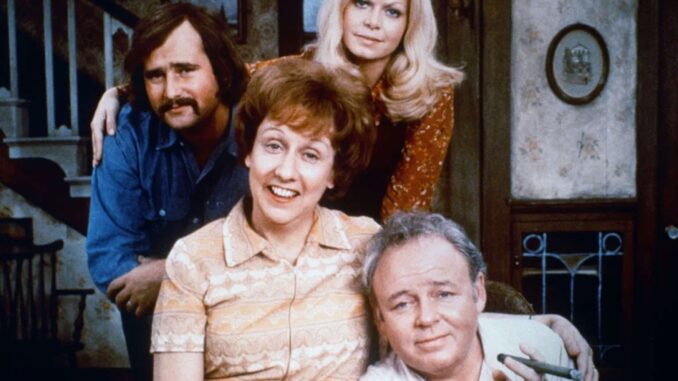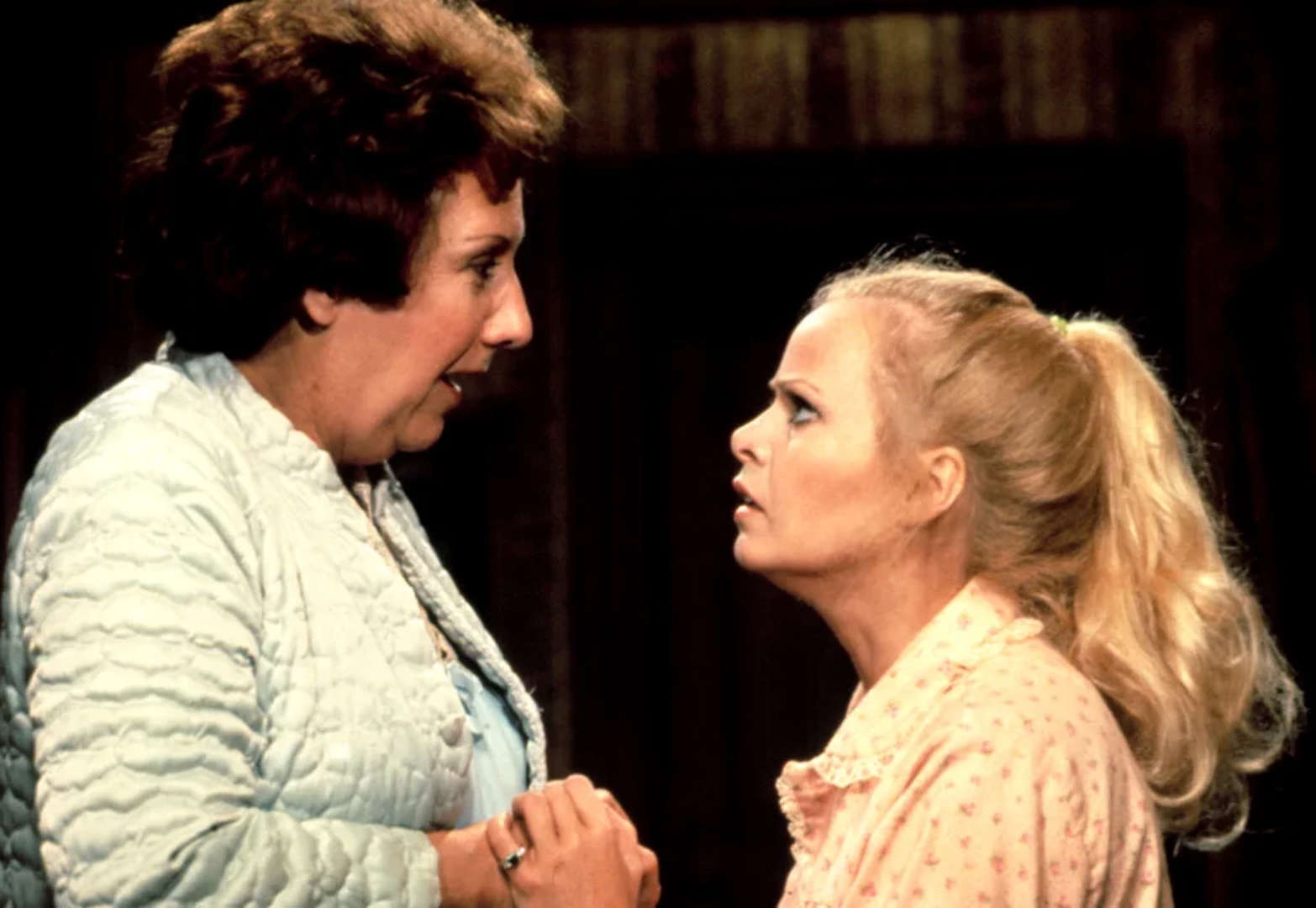
All in the Family made waves in the ’70s by addressing racism head-on. The show’s central character, Archie Bunker, was a working-class man whose casual bigotry sparked many conversations about prejudice. One of the most impactful moments was when Archie’s daughter, Gloria, confronted him about his racist views, forcing audiences to reflect on their own beliefs. In the midst of its sitcom format, the show broke barriers by portraying such a serious issue in a way that hadn’t been done on television before. It wasn’t just about laughs; it was about challenging the status quo.
 While the portrayal was at times uncomfortable, it was undeniably ahead of its time. The show didn’t shy away from showing the impact of racial tensions on relationships, which set it apart from more traditional sitcoms. By including such controversial topics, All in the Family invited viewers to rethink their views on race and opened the door for other shows to follow suit.
While the portrayal was at times uncomfortable, it was undeniably ahead of its time. The show didn’t shy away from showing the impact of racial tensions on relationships, which set it apart from more traditional sitcoms. By including such controversial topics, All in the Family invited viewers to rethink their views on race and opened the door for other shows to follow suit.
The ’70s TV Revolution That Changed Everything
Long before hashtags, viral videos, and streaming platforms, television in the 1970s quietly sparked a social awakening. While most people think of the era as groovy and carefree, the small screen was actually where some of the most groundbreaking cultural conversations happened — way ahead of their time.
From racism to women’s rights, and even mental health, several shows tackled issues that were considered too “taboo” for TV. But they didn’t just bring these topics into our living rooms — they forced us to face them.
Let’s look back at 7 powerful ’70s TV moments that weren’t just entertaining… they were revolutionary.
“All in the Family” Tackled Racism Head-On
Meet Archie Bunker — America’s Favorite Bigot
When All in the Family premiered in 1971, no one had ever seen a character like Archie Bunker on television. He was rude, ignorant, and unapologetically racist — and yet, creator Norman Lear used him to highlight the absurdity of prejudice.
Satire With a Purpose
Rather than glorify Archie’s beliefs, the show used humor to expose them. It made people uncomfortable — and that was the point. Racism wasn’t just a plot device; it was a conversation starter.
2. “Maude” Took on Women’s Reproductive Rights in Prime Time
A TV First — The Abortion Episode
In 1972, Maude shocked the nation when it aired a two-part episode about abortion — before Roe v. Wade was law. Bea Arthur’s character, Maude Findlay, faced an unplanned pregnancy at 47 and made the decision to terminate.
Real Talk, No Apologies
The storyline was written with empathy and courage, showing a woman making a deeply personal choice. It was honest, respectful, and decades ahead of network norms.
3. “Good Times” Showed the Harsh Reality of Poverty
Breaking the Sitcom Mold
Good Times followed the Evans family in a Chicago housing project. Instead of glamorizing poverty or using it as a punchline, the show gave a realistic view of life in the inner city.
Social Struggles With Substance
The show tackled systemic racism, unemployment, and violence — issues that still affect millions today. And James Evans Sr.? A hardworking Black father trying to hold it all together — not the stereotype, but the truth.
4. “MAS*H” and the Emotional Toll of War
War Is Hell — Even in a Comedy
Set during the Korean War but often seen as a commentary on Vietnam, MASH* blended sharp wit with devastating honesty about the horrors of war.
The Episode That Broke Everyone
In one unforgettable episode, Hawkeye recounts a disturbing event involving a crying baby on a bus. It’s a powerful look at PTSD — and the cost of war on the human soul.
5. “The Mary Tyler Moore Show” Made Feminism Funny — And Fierce
Independent Woman Vibes, 1970s Edition
Mary Richards was a single woman in her 30s, working in a newsroom, and not looking for a husband. Groundbreaking? You bet.
Workplace Sexism on Blast
From unequal pay to being talked over by male colleagues, Mary faced it all — and stood her ground. Her quiet strength helped shift how women were viewed on-screen and in society.
“One Day at a Time” Normalized Divorce and Single Motherhood
Not Your Traditional Family
When One Day at a Time premiered in 1975, it showed a divorced mom raising two daughters — and doing it with grit and grace.
Ahead of the Curve on Mental Health and Abuse
This wasn’t just about day-to-day life. The show tackled depression, sexual harassment, and domestic abuse — all while maintaining its humor and heart.
7. “Roots” Brought America’s History of Slavery Into the Living Room
A National Wake-Up Call
In 1977, Roots aired as a miniseries that captivated millions. It followed the true story of Kunta Kinte and his descendants, exposing the brutal legacy of slavery in America.
Not Entertainment — Education
It was uncomfortable. It was emotional. And it was absolutely necessary. Roots opened the door for TV to educate as much as entertain.
Why These Moments Still Matter Today
Because the Issues Haven’t Gone Away
Racism, reproductive rights, war trauma, economic inequality — we’re still talking about these things. These shows didn’t solve the problems, but they got people talking.
They Laid the Groundwork for Bold TV
Shows like This Is Us, Pose, Orange is the New Black, and Euphoria owe a debt to the trailblazers of the 1970s. Without them, we wouldn’t have the fearless storytelling we see today.
The Power of Storytelling That Dares to Speak Up
TV is more than entertainment — it’s a reflection of who we are, what we believe, and what we’re willing to confront. These ’70s shows didn’t just reflect the times… they challenged them.
They pushed boundaries, took risks, and made people think. And that? That’s timeless.
Conclusion: The ’70s Were More Woke Than You Think
So next time you flip through a retro TV channel or hear someone say, “TV back then was so simple,” you’ll know the truth. The 1970s weren’t just about laugh tracks and family dinners — they were a revolution on-screen.
These shows dared to go where no others had gone, and we’re still feeling their impact today. They didn’t just air — they roared. Loud. Unapologetic. And unforgettable.
